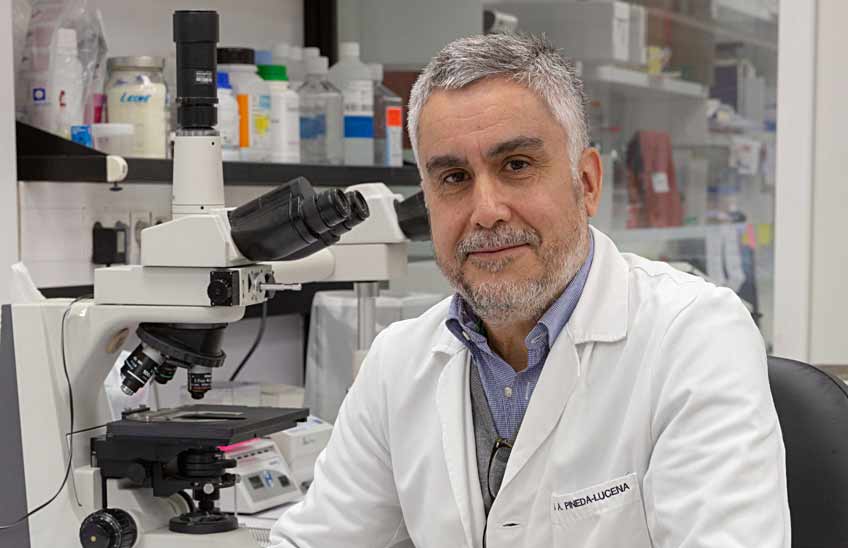Gut microbiota bacteria identified that could prevent antibiotic resistance
The Cima University of Navarra participates in a multicenter study for the development of new strategies to curb infections associated with this resistance.

09 | 03 | 2023
Researchers at Cima University of Navarra participate in a study of the intestinal microbiota (set of microorganisms present in the human body) that could prevent antibiotic resistance. The work, coordinated by the Fundación para el Fomento de la research Sanitaria y Biomédica de la Comunitat Valenciana (Fisabio), identifies the capacity of five bacterial strains of the intestinal microbiota to restrict the colonization of bacteria resistant to multiple antibiotics.
"We have discovered in animal models that the consortium of five bacterial strains (Alistipes, Barnesiella, Olsenella, Oscillibacter and Flavonifractor), naturally present in the intestinal microbiota, deplete nutrients necessary for the growth of bacteria of the genus Enterococcus. These pathogens, multiresistant to antibiotics, are especially affected by the loss of fructose, a sugar subject usually found in our per diem expenses", explains Dr. Antonio Pineda-Lucena, director scientific Cima University of Navarra and researcher of project. The results have been published in the scientific journal Nature Communications.
The researchers have found that the nutritional deficiency encountered by the pathogens prevents their optimal growth and, consequently, protects the organism against infection. "Using mouse models, we have shown that the administration of these commensal bacteria reduces the pathogen's ability to colonize the intestine, a step core topic for the development of the infection and transmission between patients," says Dr. Carles Úbeda, researcher of FISABIO and director of the study.
This pathogen subject is among the third to fourth most prevalent pathogens causing infections in hospitalized patients worldwide and can cause lethal outcomes due to its resistance to most currently available antibiotics, making it difficult to treat. As a result, it is among the highest priority multidrug-resistant pathogens for which new therapies must be developed, according to the World Health Organization (WHO).
State-of-the-art techniques
For the development of the study, the group of research has applied novel techniques of massive sequencing of bacterial DNA (metagenomics) and RNA (transcriptomics), as well as the analysis of substances called metabolites (metabolomics) present in the gastrointestinal tract.
This work could lead to new non-antibiotic strategies to prevent infections caused by this multidrug-resistant pathogen. "This is a relevant finding , as antibiotic resistance is one of the most important public health problems facing society today," concludes Dr. Pineda-Lucena.
The researcher of Cima coordinates, in turn, the project microBiomics, a consortium funded by the Government of Navarra in its call for Strategic Projects research and development 2021. This project, which also includes the participation of Navarrabiomed, the Clínica Universidad de NavarraHospital of Navarra, the University of Navarra, NUCAPS, CNTA, ADItech and NASERTIC, has the goal objective of developing a multi-omics platform and a set of bioinformatics tools to characterize the role of the microbiota in different pathological processes.
